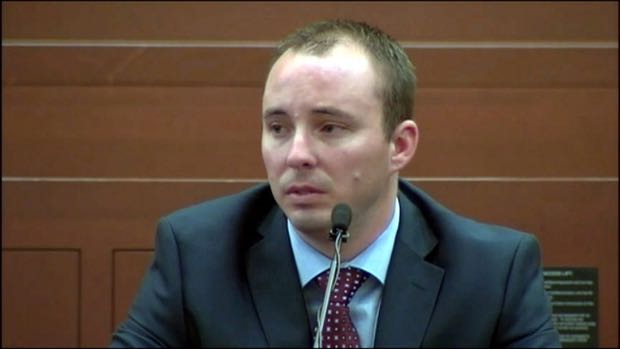North Carolina in settlement with officer whose trial in fatal shooting ended
Randall “Wes” Kerrick, who is white, shot former college football player Jonathan Ferrell ten times during a nighttime confrontation.
The City of Charlotte says the officer involved in the shooting of an unarmed man has resigned and is also getting money from the city.
Kerrick testified that he repeatedly fired because Ferrell kept charging at him and he didn’t think his weapon was working. Kerrick was charged with voluntary manslaughter and saw his trial end with a hung jury. Prosecutors then made a decision to drop the charge rather than try the case again.
Prosecutors argued Kerrick should have used nonlethal force, but Kerrick and his attorneys argued the officer feared for his life. It was later learned the jury was hung eight to four in favor of acquitting. An additional $16,000 will go toward social security and Kerrick’s retirement, according to the Observer, and about $50,000 more will go the attorney who represented Kerrick in the civil suit that Ferrell’s family filed in the wake of his death.
Neither the city nor the officer, Randall Kerrick, admitted any wrongdoing or liability, and the settlement announced on Thursday released the city from any potential legal claims in the case.
One of the lawyers who represented Kerrick in the criminal trial told the paper in a statement that his client’s actions on the night of September 14, 2013 had been justified under the law.
The City Attorney, Robert Hagemann, says the separation agreement covers expenses that the city would have likely been found liable for had the matter been litigated.
The case against Kerrick was declared a mistrial on August 21.
Police were called when Ferrell crashed his auto and, authorities believe, a woman called 911 when he knocked on a door to possibly get help.
As a result of Ferrell’s death and the outrage it produced in a few parts of the city, CMPD officers are now assigned to wear body cameras to record their interactions with the public.
“CMPD also remains committed to increased emphasis on community and police relations”. Often those reviews lead to more refined police policies and training. “The Cops and Barber dialogues and other community outreach efforts remain a high priority for developing a greater understanding between members of the community and the police that serve them”.








